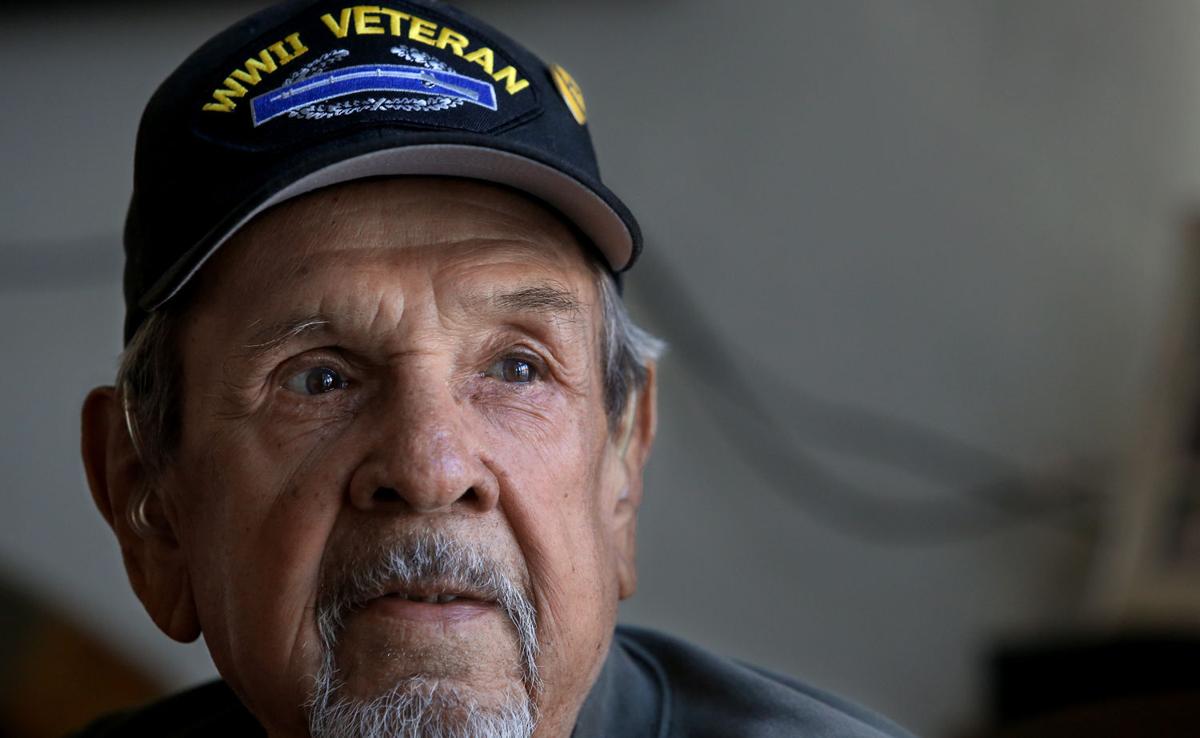Attending annual reunions has helped Army veteran Frank Mendez learn more about the POWs he helped rescue from a Japanese internment camp as well as cope with his memories.
During the daring rescue at the University of Santo Tomas, Mendez’s small detachment went behind enemy lines in order to save American prisoners facing execution, he said. And considering the odds, Mendez and many others believed they would not get out alive.
“I considered it to be a suicide mission because we were a small force,” Mendez said. “And I wasn’t the only one; several of the boys thought that, too.”
Like many soldiers, Mendez, 92, has no regrets and remains humble about his time in the service.
Although Mendez was frightened, that assignment was business as usual, he says now with a warm laugh. “It was just another mission.”
Mendez was born and raised in Tucson, and with the nation slowly recovering from the Great Depression, he enlisted in the Army on Aug. 5, 1940, for financial reasons.
“Times were pretty hard and I came from a big family,” he said.
So before the U.S. entered WWII, Mendez became a soldier and persuaded a neighborhood friend to enlist with him. The two men fought side by side throughout the war and were both wounded during a battle on the streets of Manila.
He served in the 1st Cavalry Division and went through basic training at Fort Bliss, in El Paso.
Upon deployment, Mendez’s trip took about 30 days because the single-gun ship had to zigzag its way through warring seas without an escort.
The first stop was Australia, then New Guinea and eventually many hard fought battles throughout multiple Philippine cities, Mendez said.
When he heard a rescue mission in Manila was next, Mendez knew his small troop was attacking about 20,000 Japanese troops head-on.
And if they were met with any type of a counterattack, both the cavalry and prisoners would have died, he said.
Even though the troops shared their rations with the POWs, Mendez didn’t consider himself worthy of praise. And Mendez explained to the young prisoners the longstanding sacrifice of their family members was the singular heroic act.
“We’re not the heroes, your parents were,” Mendez said, “They were doing without to keep you healthy.”
One of the POWs was Liz Irvine, who wrote about her experience in “Surviving the Rising Sun.” Mendez has remained in contact with Irvine since that evening, he said.
Laura Mendez, Frank’s wife of 68 years, learns a lot about his time in the service while attending the annual reunions, she said.
“He doesn’t talk much about when he was in action,” she said.
But the memory of seeing emaciated civilians scarred him, she said. Although Frank Mendez is always impressed by the praise he receives, recalling that time still hurts, she added.
The annual gatherings are pleasant, inviting experiences, Laura Mendez added, but time and again her husband insists the survivors themselves deserve all the credit.
“It’s very warm, very nice and the people are very grateful to him,” she said. “They call him a hero, but he’s not happy with that. He calls them the heroes.”





